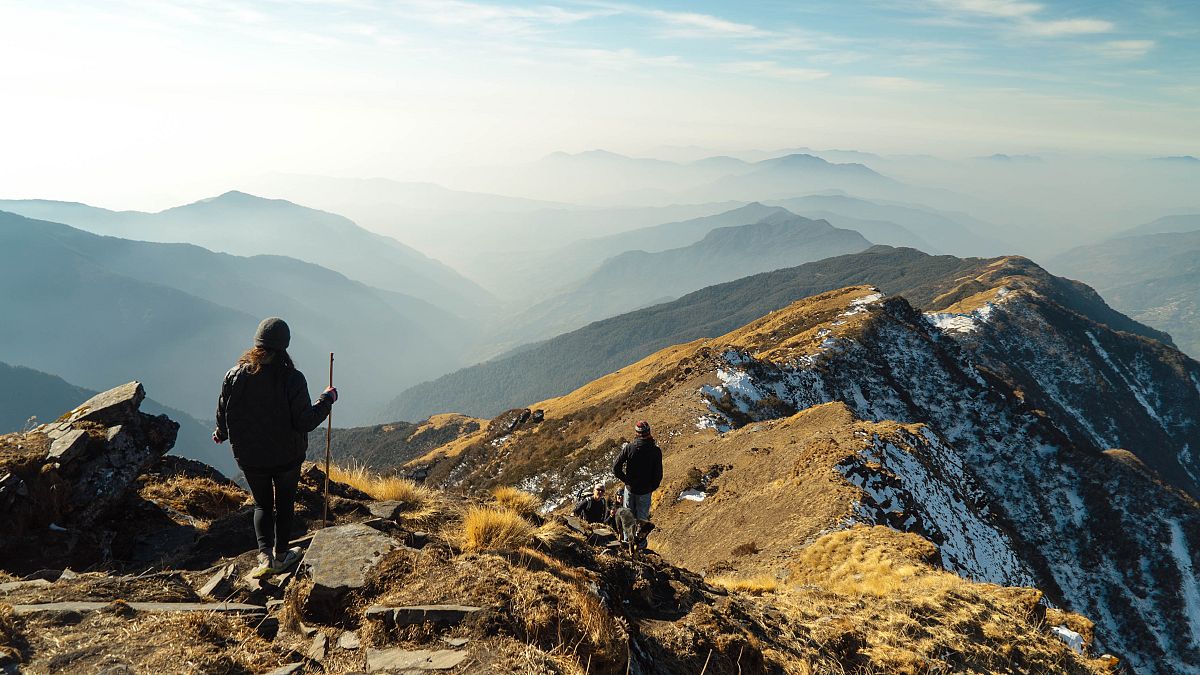Five destinations in Europe are among the top ten sustainable places to travel to in 2024, according to Lonely Planet.
The travel experts have released their top picks for where to go in the world this year. The ranking is divided into the categories of countries, regions, cities, sustainable and value.
The sustainable category places focus on responsible tourism and environmentally friendly strategies.
From Spain to rural Wales, here are the winners in Europe.
Spain for city parks and cycle paths
Spain is already one of the world’s most popular holiday destinations. But the sun-drenched country has been working hard to encourage tourists to visit off-season, and promote overlooked destinations.
It has also been investing in eco-friendly forms of transport including expanding cycle networks, switching to electric buses and launching new train routes.
Valencia, on the east coast of Spain, is the European Green Capital for 2024 thanks to sustainable initiatives including designating new peri-urban farmland, pedestrianisation of 30,000 m2 of public space and improving high-speed train links to other cities.
If you visit, make sure to take a turn around the Jardín del Turia, a traffic-free park created from the city’s 9km long Turia riverbed. You can hire a bike or join a two-wheel tour.
Greenland for low-impact adventures on ice
Greenland has long drawn curious and intrepid travellers to its vast ice sheets and tundra landscapes.
The country’s tourism board, Visit Greenland, has been working to mitigate the problems of an increasing number of visitors.
This includes ensuring the upkeep and preservation of natural environments and regulating tourism activities.
Greenland is a prime destination for Northern Lights spotting, and the country will see a “spike in aurora sightings as the sun reaches peak activity in the next few years,” Lonely Planet writes.
For a low-impact adventure, the travel site recommends a two-day camping trip on the world's second-largest ice sheet beginning in Kangerlussuaq, just a short drive away.
Wales for wild walks in nature
Wales, one of the world's first countries to legislate for sustainability, has made the list thanks to its revamped rail network.
Lonely Planet praises the country’s expansion for increasing the “planet-friendly possibilities of exploring the nation's wild, wonderful west.”
The remote Pembrokeshire National Park is becoming more accessible thanks to new railway stations and increased services planned for South Wales's main rail line in early 2025.
You can also get a taste of the food of the future at Dr Beynon's Bug Farm near St Davids.
This research centre and nature reserve is home to the Grub Kitchen, the UK's first edible-insect cafe. Here, you can learn about sustainable food and then nibble a cricket cookie if you dare.
Portugal for a long-distance hike
For an epic pilgrimage to Spain’s Santiago de Compostela, walkers can begin in Portugal and extend their journey on the trail to 620km.
The Portuguese Way (Caminho Português de Santiago) is a scenic journey that can be undertaken on foot or by bike.
The route begins in Lisbon and passes Romanesque churches, picturesque rivers and ancient villages.
You can “spend the night at locally-owned albergues, dine in traditional restaurants, and tour small towns that have struggled as their residents flocked to the big cities,” Lonely Planet says.
The Baltics for meditative movement in nature
In the Baltic nations, you’ll find “paths [that] comprise what could be considered Europe's longest meditation practice,” according to Lonely Planet.
The travel experts recommend visiting to the region’s sand dunes, rivers and lakes on a journey towards “discovering your inner self.”
Head to Estonia for austere landscapes, Lithuania for the fine sands of the Curonian Spit and Latvia for the forested valley of the Gauja River, perfect for leaf-peeping in autumn.


